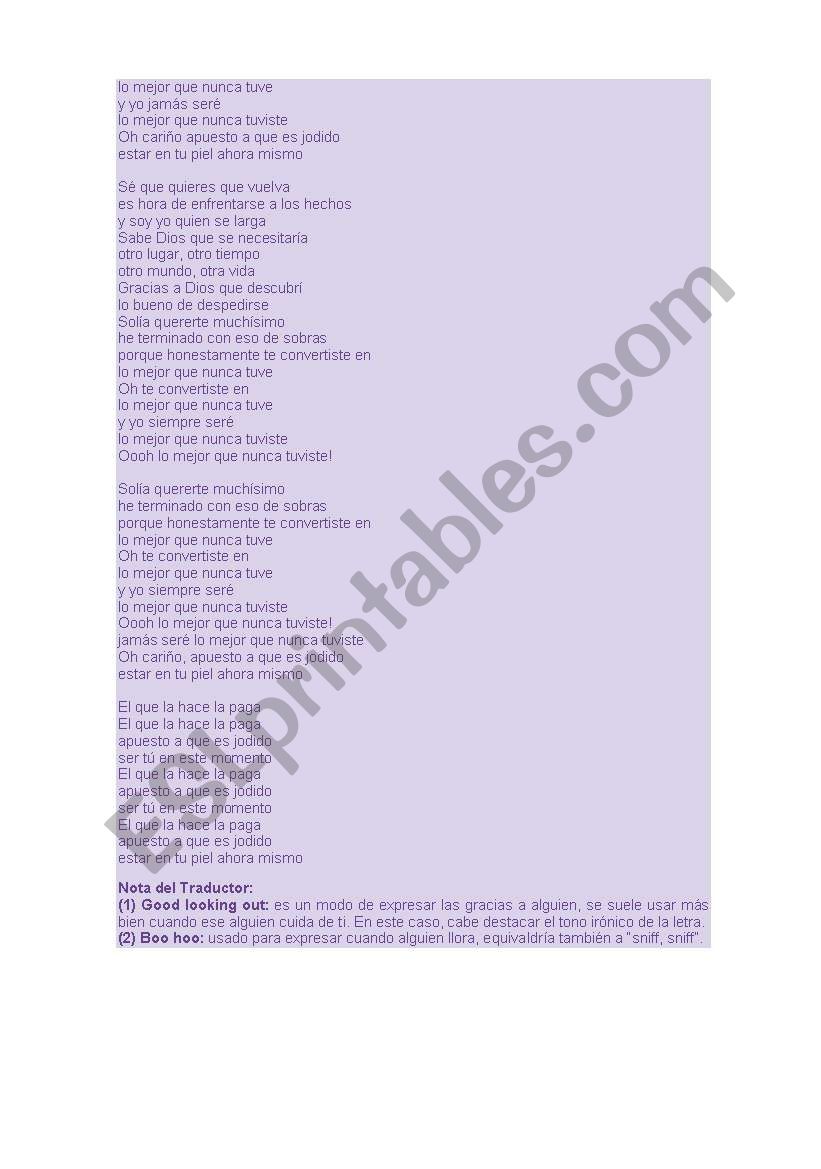
So "best" here can mean the 'best to not have'. The scope of the word "best" can include the "never" and then its negation affects the interpretation of "best". In sentence 1 ("You turned out to be the best thing I never had"), the not-having is being done by B.

And then the "you never had" is an extra bit of information that states that C (he) has never had B. So "best" here can mean its usual 'highest valued'. The word "best" is tightly bound to the word "thing" - it has a very restricted scope. B (Beyoncé) states that she is the best thing.

Sentence 2 ("I will always be the best thing you never had") has the simpler interpretation. Starting with sentences 1 and 2, the trick lies with the word "best" and how its scope can be stretched in two ways, making the phrase ambiguous. To make it simpler, I'll refer to the singer as B (for Beyoncé) and him as C. Let's analyse the sentences and see how they work. While sentences 2 and 3 seem to flatly contradict each other, but mean the same thing.

Sentences 1 and 2 use exactly the same phrase "the best thing never had" to mean directly opposing things for You and I.


 0 kommentar(er)
0 kommentar(er)
